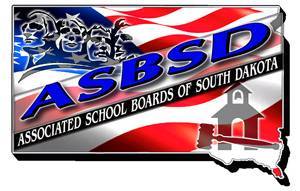Committee members wasted no time in acting on legislation in House Ed.
In their first committee meeting of the 2019 legislative session, House Education committee members unanimously passed two education related bills.
House Bill 1001, which requires the recalculation of the special education disability levels’ amount allocation to take place every two years, passed on a 14-0 vote.
ASBSD supports the bill, which, while not directly dealing with the extraordinary cost fund, emerged from the 2018 legislative interim study of the subject.
“As those (special education student) numbers grow, so do those pressure points on our budgets,” ASBSD Executive Director Wade Pogany testified. “I think (the two-year review) just relieves a bit of the pressure.”
The bill amends the current practice of recalculating the allocations based on disability levels every three years to every two years.
“It will give us a more accurate and up-to-date information about the needs that special education has in the state of South Dakota,” Sen. Jim Bolin, a member of the interim study committee, said during his testimony.
“It’s a good idea to help us get a handle on some of these costs related to special (education).”
Rep. Hugh Bartels, who also sat on the interim study committee, noted the bill would have “no immediate fiscal impact” on the state budget and through a 12-year budget cycle it “nets out” for the state.
HB 1001 also passed the House floor on a 69-0 vote. It will head to the Senate for review.
Committee members also unanimously passed House Bill 1040, which revises provisions for alternative instruction students to receive the opportunity scholarship.
ASBSD is monitoring HB 1040, which lowers the ACT qualifying score from 28 to 24 and requires parents of the students receive alternative instruction to provide transcript noting the required coursework has been completed; each criterion being similar to what is required for public and private high school graduates who receive the scholarship.
“When a parent signs a transcript and says that ‘it’s legit,’ it’s legit,” Family Heritage Alliance Executive Director Norman Woods testified.
A bill without the transcript requirement was vetoed by former Gov. Dennis Daugaard during last year’s session.
Tony Venhuizen, a Senior Advisor for Gov. Kristi Noem, noted the bill institutes an “equal pathway with identical criteria” for students to receive the opportunity scholarship.
HB 1040 was also passed by the House on a 66-1 vote. It now heads to the Senate for review.
For updates on these bills and other legislation throughout session, check the ASBSD Blog, Twitter feed, Facebook page and Bill Tracker.
